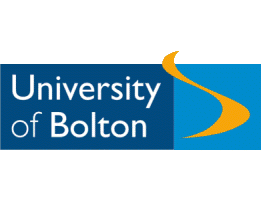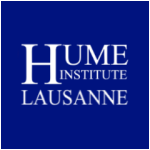At this point in history, as we study global healthcare systems we are aware of great potential but also threat and disparity. It is important to recruit scholars who understand how to maximise the potential whilst also overcoming threats and disparities. Healthcare is, of course, a worldwide movement within which knowledge must be shared, resources must be exchanged, critical questions must be asked, and positive solutions must be designed and brought to practice.
Within the scope of doctoral studies of Global Healthcare are the worldwide improvement of health, new technology and its implications, knowledge management, the reduction of disparities, community development and protection against global threats. In an inviting and constructive multi-disciplinary context we seek to study topics that are relevant to policy and positive action for healthcare on the ground.
The study of global healthcare systems reveals great potential through new medicine, technology, and policy, but also reveals threats and disparities. It is important to recruit scholars who understand how to maximise the potential whilst also overcoming these threats and disparities. Healthcare is, of course, a worldwide movement within which knowledge must be shared, resources must be exchanged, critical questions must be asked, and positive solutions must be designed and brought to practice.
Within the scope of doctoral studies of Global Healthcare are the worldwide improvement of health, medicine, practice, new technology and its implications, knowledge management, the reduction of disparities, community development and protection against global threats. In an inviting and constructive multi-disciplinary context we seek to study topics that are relevant to policy and positive action for healthcare on the ground. Our goal is the Removal of Disparity, and the Delivery of Quality and Equity in Public Health.
Professor John Lumley DSc, MS, FRCS Emeritus Professor of Vascular Surgery; former Consultant Surgeon at St Bartholomew’s Hospital in London; The Hospital for Sick Children, Great Ormond Street; and The National Hospital for Nervous Diseases, London; Consultant Surgeon to the Royal Navy.
Research: Early work was on interhemispheric transfer at University College; later research was linked to clinical interests of cerebral revascularization, carotid sinus reflexes and extra-intracranial arterial bypass.
Writings: as well as research papers, author/editor of over 70 textbooks and Editor of five journals
Appointments: in the Medical field included the Council of the Royal College of Surgeons for 12 years; Member of NICE; founder member of Confidential Enquiry into Perioperative Deaths (CEPOD), Serious Hazard of Blood Transfusion (SHOT) and the National Blood Transfusion Committee (NBTC); Chair of the Diploma of the Medical Care of Catastrophes (DMCC), Primary Fellowship Examiners of the Royal College of Surgeons and the United Examining Board (UEB); Past World President of the International College of Surgeons.
Charitable Bodies: Chair Music Therapy Charity, and current Chair Medical Festival Orchestra of London, the Royal Hospital of St Bartholomew Charitable Foundation and the Barbican Art Society Charity.
Interests: include Sport, where he is a Past Captain of the United London Hospitals Tennis Team; Art, where he has written texts on painting and drawing; and Music, where he has conducted his own Choir and Orchestra for 48 years, incorporating a number of overseas tours and is co-author of the text The Art of Conducting.
All Hume candidates participate in a Research Methodology course. Alongside this they work with their research supervisors in online tutorials. These are further accompanied by peer workshops, annual colloquia and twice-yearly mock vivas.
Through the PhD in Global Healthcare, we are seeking to develop research topics within or across the following areas:
Poverty, Ignorance, Uncertainty, Oppression, Natural and Man-made Disasters, Environment Safety, Sanitation, Provision of Food, Water, Clothing, Housing and Infection Control.
Pharmaceuticals, New Technologies, Trauma and Disaster, Infection, Mental Health, Paediatrics, Obstetrics, Chronic Disease and Ageing.
Public Education, Training Health Professionals, Delivery and Maintenance of Appropriate, Healthcare Systems, Informatics, Government, Community, Non-Government Agencies and Companies
All applicants to Hume must satisfy one of the following conditions in order to be considered for an interview with a Programme Director or Tutor.
-
A good Masters degree from a recognised university, OR
-
Ten or more years experience in a related area of work, plus an undergraduate degree of high standing.
In addition, in all cases where a student has not previously completed a degree (undergraduate or postgraduate) taught in English, it will be necessary to provide one of the following:
-
IELTS – Overall score 6.5. No less than 6.0 in any section.
-
TOEFL – Overall score 90 with minimum scores of 21 for writing, 21 for listening, 22 for reading and 23 for speaking.
-
Pearson – 58 with no less than 55 in all communicative skills
Duration for the full-time programme is normally 3 -4 four years with a fee of £12,000 per year;
Duration for the part-time programme is normally 5 -6 years for a fee of £6,000 per year.


